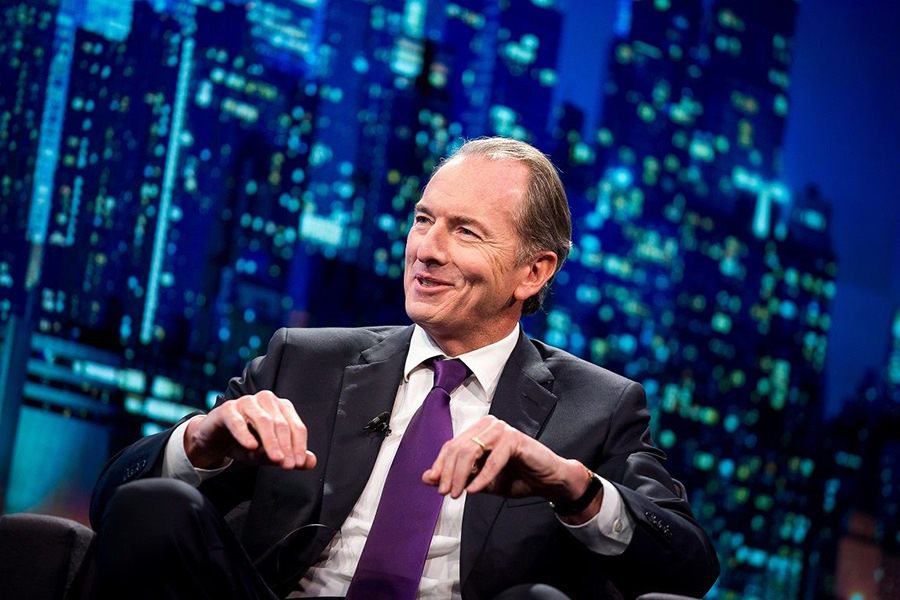

James Gorman will cede his role as Morgan Stanley chairman at year-end, capping a nearly two-decade run at the firm in which he rescued it from the brink of failure and turned it into a wealth-management powerhouse.
Gorman, 65, disclosed his plan Thursday at the company’s annual shareholder meeting. No replacement was immediately named, though Chief Executive Officer Ted Pick is expected to take that post eventually.
The decision to step down after giving up the CEO role in January is seen as a vote of confidence in Pick’s leadership. When Gorman first rose to the top at the then-embattled firm in 2010, his predecessor, John Mack, stuck around for two years as board chair before Gorman consolidated his hold on the company.
Gorman pulled off a Wall Street rarity last year — picking a successor while persuading the losing candidates to stick around anyway. The former McKinsey & Co. executive has been public in telegraphing his timeline for giving up his duties and had previously signaled he would vacate his post as chairman by the end of this year.
The Australia-born banker jumped from Merrill Lynch in 2006 to help rejuvenate Morgan Stanley’s wealth-management business. By the time he became CEO, the firm was scarred by the financial crisis, which almost put it out of business. Gorman engineered a revival of the investment bank and turbo-charged a money-management operation that now oversees $7 trillion.
Pick, 55, has to convince investors that the company still has a promising growth story ahead of it. While Morgan Stanley shares have advanced 8% this year, the gain is by far the weakest among the biggest US banks.
Investors have been circumspect about the firm’s ability to continue posting strong results in its wealth-management juggernaut, and the investment bank has been ceding ground to arch rival Goldman Sachs Group Inc. Pick has pledged to keep meeting Morgan Stanley’s goals in the wealth business while unlocking additional gains in investment banking.
“I think we are in the early innings of a multiyear M&A cycle,” he said in April on the company’s earnings call. “I’m feeling good about this being early to mid-cycle for the classic investment-banking and capital-markets business around the world.”

Advisors who expect an edge from alternatives' illiquidity premium – without understanding the underlying terms and explaining them to clients – have a world of learning to do.

The social influencer Tyler Bossetti pleaded guilty to wire fraud and aiding in the filing of false tax documents as a result of the real estate scheme, which ran from 2019 to 2023 and used platforms including Facebook and YouTube.

The latest LIMRA data release shows continued growth in RILAs, variable annuities, and FRD products, though researchers argue more education is still needed.

Indivisible Partners builds on its strategy to take turf in the independent space with its latest move in Colorado.

LPL's latest addition, a San Diego team defecting from RBC, represents a milestone for the broker-dealer giant's Strategic Wealth model for wirehouse breakaways.
Barely a decade old, registered index-linked annuities have quickly surged in popularity, thanks to their unique blend of protection and growth potential—an appealing option for investors looking to chart a steadier course through today's choppy market waters, says Myles Lambert, Brighthouse Financial.
How intelliflo aims to solve advisors' top tech headaches—without sacrificing the personal touch clients crave
